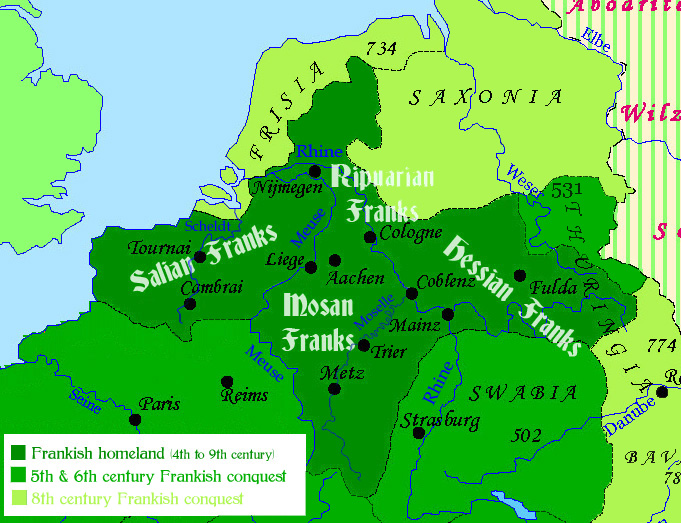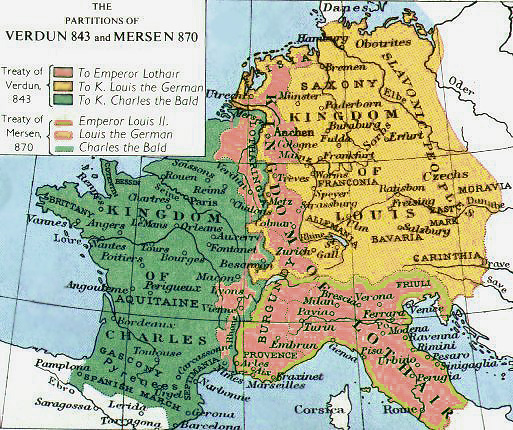The Franks took pride in having “fought against and thrown from their shoulders the heavy yoke of the Romans”.
The Franks integrated well into Roman society, speaking Latin fluently, obtaining Roman citizenship, and being often promoted by the emperors to consular ranks (including senators) for their competence.
During the transition from Antiquity to the Middle Ages, Frankish tribes were united under the Merovingian dynasty. The election of Pepin as King of the Franks by an assembly of Frankish nobles was followed by his anointing in 751 at Soissons by Boniface, archbishop of Mainz. Pope Stephen II travelled to Paris to anoint Pepin and his sons in the Basilica of St Denis in 754.
The Frankish tradition was to divide land between the male heirs. After Charlemagne died in 814, his empire was repeatedly divided among his descendants.
Charles the Bald inherited Western Francia, which would become known simply as France. Louis the German received East Francia, making up most of present day Germany. Lothair kept the title of emperor (which is indivisible) and Middle Francia which included the Frankish homeland and Imperial capital of Aachen.
The Franks are thought to have derived from Denmark or Schleswig-Holstein in the Early Iron Age (c. 500 BCE) and settled as far as the Rhine, circa 200 BCE. Around the 2nd and 3rd century C.E. they crossed the Rhine moved into Toxandria and the Rhineland.
The Rhine and Moselle valleys in are known as “Franconia”, and dialects in this region are varieties of Franconian, direct descendants of Old Frankish. By the end of the 17th century the concept of Old Frankish, the ancestor language of Dutch, German, and the Frankish words in Old French had been firmly established.

